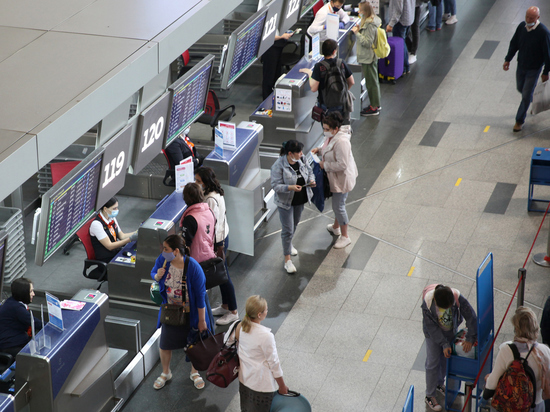The factors that dispersed the prices of air tickets are named: literally everything rises in price
[ad_1]

Logistics is changing dramatically, as well as the cost of fuel and spare parts
Last year, the cost of domestic air travel increased by an average of 11%, according to Rosstat. The largest ticket booking services call a range of price increases of 8-14%. In general, these figures correspond to the level of general inflation in the country, that is, in real terms, there is no increase in the average price as such. But the personal practical experience of people who used the services of the domestic aviation industry throughout the year suggests otherwise. Yes, and there were plenty of factors that objectively accelerated prices.
According to Rosstat, in December 2021, the average cost of air tickets per 1,000 kilometers was 5482.2 rubles, and in December 2022 – 6096.9 rubles. The growth was 11%, it was higher only in the crisis year of 2008, when air tickets went up in price by a third. At the same time, last fall, the head of the Ministry of Transport, Vitaly Savelyev, stated with reference to data from the Federal Antimonopoly Service (FAS) that prices last year remained at the level of 2020-2021 and decreased by 6.5% compared to 2019. Experts explain the discrepancy in the data by different methodologies for counting departments. For example, Rosstat specialists monitor prices both on the Internet and by contacting ticket offices at departure airports directly. Among the flights, those that are most popular with passengers are chosen. And the FAS calculates weighted average fares for each route.
“Obviously, the costs of Russian airlines could not help but increase against the backdrop of tough sanctions,” says Artem Deev, head of the analytical department at AMarkets. – The profit of air carriers is usually formed at the expense of foreign destinations, many of which were closed in 2022. Flights within Russia are a priori much less profitable: the cost of tickets has to be kept at a relatively low level in order not to reduce passenger traffic. Therefore, raising prices on domestic flights is a forced measure, because Russians began to fly abroad much less frequently.”
According to Deev, the upward trend in the cost of air travel in the Russian Federation will continue, but will not go beyond the average inflation. It is not profitable for companies to increase tariffs greatly, since this is fraught with a reduction in passenger traffic and, accordingly, income.
“Tickets have risen in price, but within the limits of inflation,” says Oleg Panteleev, executive director of the Aviaport agency. – Moreover, if we take the pre-pandemic year 2019 as a starting point for comparing prices, it turns out that the dynamics are much lower than the inflation accumulated over this period. On average, for the Russian consumer, the price of air tickets has increased to a much lesser extent than the cost of many other goods and services.”
But more importantly, in 2022, there was still a high demand from the population for domestic flights, the intensity of which on accessible routes (for example, Moscow-Sochi) did not decrease at all (despite the fact that a number of the largest airports in the south were closed due to NWO). This means that the services of carriers were quite affordable for citizens. As for the companies themselves, they did not experience a shortage of serviceable liners on domestic lines, moreover, there was even a certain excess of free boards due to a reduction in the number of available destinations. In addition, Panteleev recalls, against the backdrop of large-scale sanctions, the government allocated more than 170 billion rubles to subsidize air travel, which allowed businesses to compensate for costs and, as a result, keep ticket prices at an acceptable level. State support also worked in the case of the fuel damper mechanism, which protected companies from skyrocketing jet fuel prices.
“Unless there is some kind of force majeure, and companies do not have extraordinary expenses, airfare prices in 2023 will be kept within the inflation,” says Panteleev. “The issue of the availability of passenger air transportation is under constant control of the government, and if costs rise, it will certainly respond, help with cash.”
Aviation pricing statistics vary widely. A number of online agencies and aggregators report an increase in ticket prices by almost 20%, Rosstat calls the figure 11%, and the Federal Customs Service and the Ministry of Transport refute the very fact of price growth. According to Roman Gusarov, editor-in-chief of the Avia.ru portal, the Ministry of Transport has the most accurate data, which for many years has been developing its own calculation method based on mathematical models. And more confidence in her. For example, only a part of requests for booking tickets go through online agencies, and the final volume of actual purchases may turn out to be completely different.
“The situation should clear up by March, when the airlines will finally calculate and publish objective figures on their economic condition, sales and profits,” says Gusarov. – But it is already known that last year 95 million people were transported within the country, and this is a very good result in the current conditions. Airline prices in 2023 will increase by 10 percent for objective reasons: there is fairly high inflation, there is an increase in costs, spare parts, logistics, and fuel have risen in price. And now there will not be such volumes of state support as in 2022.”
[ad_2]
Source link






